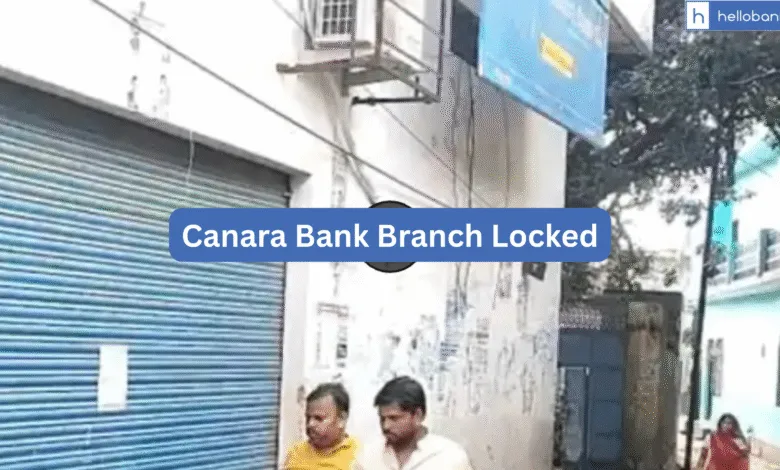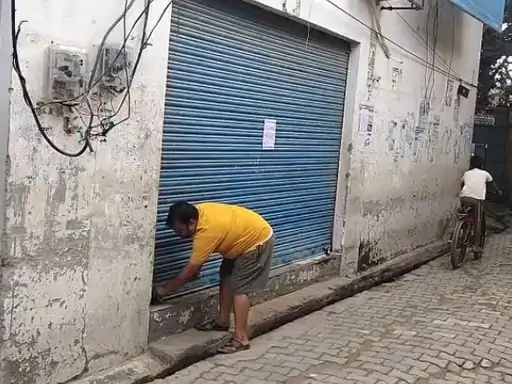Canara Bank Branch Locked in Etah by Landlord

Etah, Uttar Pradesh: In a shocking news, a branch of Canara Bank in Aliganj town, Etah was locked by landlord over rent agreement issues.
Building owner, Prakhar Gupta, and his brother locked the shutter of the branch, leaving customers unable to access banking services.

The dispute arose over lease terms. Gupta said he had rented the premises to the bank 10 years ago, but after the agreement expired, he served a notice in July asking the bank to vacate. While the bank arranged another building, it did not move out of the existing one.
Both sides agreed on increasing the rent but clashed over the lease duration. The bank proposed a 5-year agreement, while the owner insisted on 10 years. On Tuesday evening, the bank sent a 5-year proposal via email, which Gupta rejected.
Talks with a senior bank official continued for two days but failed to reach a solution. Following this deadlock, Gupta locked the branch of Canara Bank.
This incident has raised a serious issue of bank operations. This shows that the GAD department of the Bank that handles the lease and maintenance of such things, has failed badly.
Moreover, users are questioning why banks rent buildings instead of purchasing them, since they need to remain operational in the same area for a long time.
Recently Govt launched Kartavya Bhavan to save Rent
Recently, Prime Minister Narendra Modi had inaugurated the Kartavya Bhavan located at Kartavya Path in New Delhi. In India, many Government Departments and Public Sector Undertakings (PSUs) operate from rented office spaces, leading to high expenditure on rent. To address this issue and provide a centralized, modern infrastructure, the Government has established Kartavya Bhavan.
Should Banks also open branches in their own premises?
Banks face a key decision when it comes to setting up branches—whether to rent or own the building. Renting offers flexibility, lower upfront costs, and allows banks to relocate or expand easily if customer demand shifts. However, it also comes with recurring rent hikes, landlord dependence, and no asset creation. On the other hand, owning a building provides long-term stability, protects against eviction, and adds to the bank’s assets, often making it more cost-effective in the long run since banks usually remain operational in one location for decades. The downside is the heavy initial investment, limited flexibility if the area becomes less profitable, and full responsibility for maintenance and property-related expenses.
What you think of this – do let us know in the comment section below.
